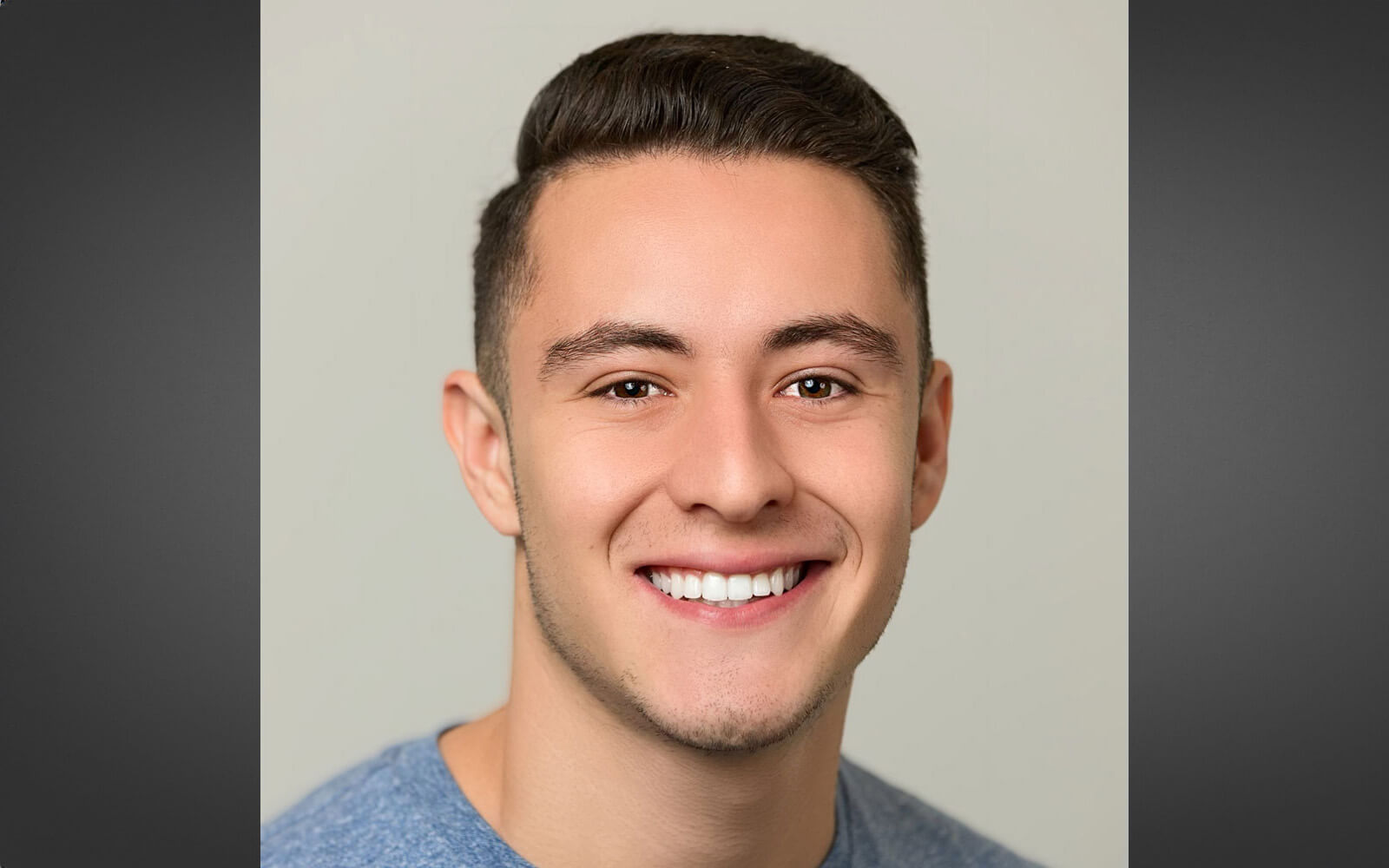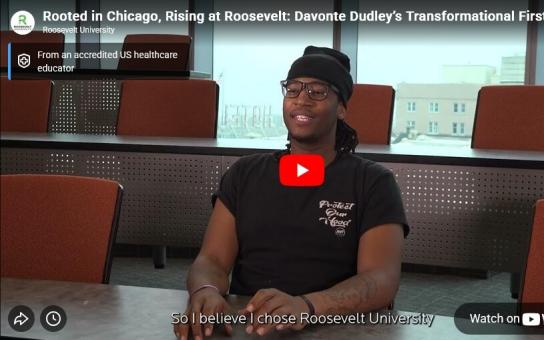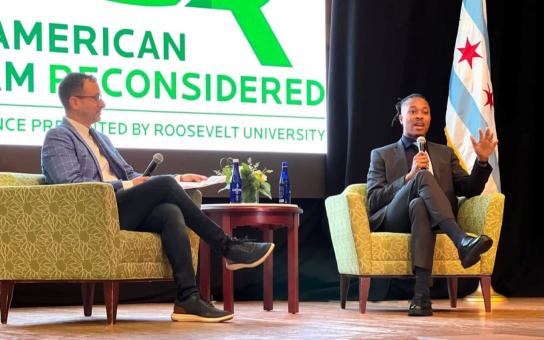
Joabe Bayer Barbosa’s path to Roosevelt University is as multifaceted as the city he now calls home. Born in Brazil and raised in London, Barbosa brought a global perspective when he joined Roosevelt’s Doctorate in Clinical Psychology (PsyD) program in 2022. “I applied to six PsyD programs and ended up at Roosevelt because they had the good offer, and it was a good program as well—very selective—out of hundreds of people who apply,” he says.
Barbosa’s passion for psychology was shaped by his father’s experience with burnout in pastoral work. “I wanted to serve people by helping them and having those skills,” he says, adding that an inspiring undergraduate course revealed how applicable psychology could be: “I like learning stuff that is just applicable to things I can change about myself, and I can help other people change about themselves.”
At Roosevelt, Barbosa thrives in a close-knit academic community. “I love my cohort, the teachers and so much more,” he says, citing the selective nature of the PsyD program as a strength. He also cherishes life in the Wabash Building. “Living in the Loop, living in the Wabash Building is fantastic,” he says. “I have everything here, but then I can also explore Chicago.”
That desire to explore took on deeper meaning after a traumatic hiking accident on New Hampshire’s Mount Washington in 2024, which left him hospitalized with frostbite and hypothermia. “I needed to get the blood flowing again,” he says. “So I started running. I thought it was quite boring, but I needed to run.” That need turned into a mission: running every street in Chicago.
Barbosa’s running transformed from rehabilitation into discovery. “I get to know people. I tell them my story, they tell me their story,” he says. “Sometimes it’s brief, sometimes a long conversation.” He’s now chronicling his experiences on Strava app, from running the Lakefront Trail to Western Avenue. “Neighborhoods that people think are dangerous—those are my favorite neighborhoods,” he says. “People are so, so friendly.”
Through running, Barbosa has developed a firsthand understanding of social justice and environmental injustice. Rather than merely discussing equity, he believes in experiencing it. “Just going into neighborhoods, greeting people, listening to their stories—there’s no substitute for being there in person,” he says. His runs through areas like Altgeld Gardens (one of the most polluted residential areas in the U.S.) opened his eyes to environmental inequity. Encounters in neighborhoods across the South and West Sides, which many avoid, helped him connect deeply with communities often overlooked. “People are so, so friendly,” he says. “If you’re friendly to them, they’re going to be friendly to you.”
At Roosevelt, he found faculty who mirrored his values. He praised professor of Psychology Dr. Steven Meyers as “very organized,” “highly accomplished” and deeply supportive. Of his time working with Barbosa, Dr. Meyers says, “I've worked with Joabe since he started our doctoral program. I've supervised his coaching work inside and outside of the university. Joabe also has been a student in our Instructor Development Program where he gained teaching skills that he is now using as an instructor for teaching undergraduate classes in our department.” He went on to further state that “Joabe is smart and incredibly grounded as a person and professional. He is able to connect with others very easily and quickly. Joabe has a way of making people feel at ease, heard and valued. He is a talented emerging professional on a promising trajectory for a very successful career in clinical work. Joabe has a wonderful sense of humor, and he brings wide set of experiences and perspectives to bear as he helps others.” Barbosa, a graduate assistant in Residence Life, also teaches undergraduates and works in clinical placements, including ADHD coaching.
Looking ahead to graduation in 2027, Barbosa remains open to where life takes him. “I want to influence people and motivate people to get out of their comfort zone,” he says. He hopes to reframe his own trauma as inspiration: “If you re-signify trauma to be positive, then you’re going to do amazing things.”
As he prepares to speak at commencement, Barbosa reflects on his time at Roosevelt with gratitude. “I love Roosevelt. I can’t emphasize that enough,” he says. “I couldn’t imagine myself going anywhere else.”


